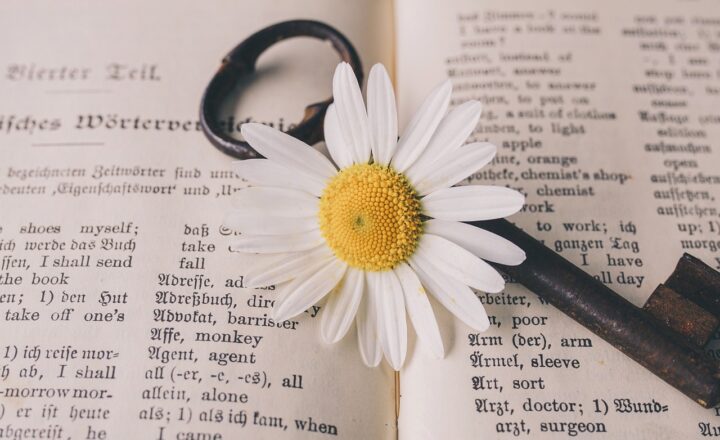The Surprising Origins of Words We Use Every Day Without Knowing Their History
November 18, 2024

Language is a fascinating thing; it evolves, transforms, and often holds centuries of history within its simple terms. Many of us use everyday words without giving a second thought about their origins. These words carry stories from the past, reflecting cultural influences, technological advances, and shifts in societal norms. In this article, we will dive into the rich etymologies of commonly used words, unveiling surprising connections and histories that may leave you amazed.
1. The Word “Salary”: Beyond Payment
The word “salary” comes from the Latin word “salarium,” which was the money given to Roman soldiers to buy salt. At that time, salt was an essential commodity, used not just for seasoning but also for preserving food. The derivation reflects the historical value placed on salt within the economy. This etymology not only emphasizes the significance of salt in ancient times but also gives us a glimpse into the socioeconomic status of soldiering.
2. “Ketchup”: From Fish Sauce to Condiment
The ubiquitous red sauce we love with fries has roots that trace back to the Chinese word “kê-tsiap,” referring to a fermented fish sauce. Early Western explorers encountered this sauce in Southeast Asia before it made its way to Europe, where it morphed into the tomato-based condiment we know today. The evolution of “ketchup” showcases the journey of multicultural culinary influences and the adaptation of foreign ingredients into local cuisine.
3. The Simple Word “Good”: A Complex History
The word “good” has a fascinating etymology that mirrors the intricate ways of human thought. Originating from the Old English “gōd,” which likely derives from Gothic and other Germanic roots, it is used to describe something that is favorable or beneficial. Over centuries, it has maintained its core meaning but has also broadened to encompass various interpretations of ethics and morality. The simplicity of the word belies its historical depth, demonstrating how concepts of good and evil have evolved over time.
4. “Nightmare”: A Hybrid of Language
The word “nightmare” combines the Old English words “nīht” (night) and “mære,” referring to a mythological demon that sat on people’s chests while they slept, causing bad dreams. Over time, the original meaning shifted from a creature to the experience itself. This evolution illustrates how folklore and superstition have shaped language, embedding vivid imagery into our vocabulary.
5. The Journey of “Whiskey”: From Water to Distillation
“Whiskey” comes from the Gaelic phrase “uisce beatha,” which translates to “water of life.” Historically, alcohol held significant value in society, from medicinal purposes to social interactions. The way this word travelled through cultures reflects not only a beverage but also a lifestyle. The transformation of “water” to “whiskey” encapsulates human ingenuity in refining nature’s gifts into legally defined spirits.
6. “Robot”: A Reflection of Futuristic Concepts
The term “robot” has its beginnings in the Czech word “robota,” which means “forced labor.” It was popularized by playwright Karel Čapek in his 1921 play, where artificial beings were created to serve humans, ultimately taking on the concept of automation and mechanization. The word speaks volumes about our relationship with machines and how our perceptions around labor and productivity have changed, especially in an age heavily influenced by technology.
7. The Historical Context of “Pandemonium”: A Monstrous Beginning
The word “pandemonium” was coined by John Milton in his epic poem “Paradise Lost” to describe the capital of Hell. It combines the Greek word “pan-” (all) and the Latin “daemonium” (demon). What started as a literary term for a monstrous place has now come to represent any chaotic situation. This evolution shows how literature has a lasting impact on language and societal response to chaos.
8. “Gadget”: A French Connection
The word “gadget” is believed to have originated from the French word “gâchette,” referring to a small tool or object used for a specific purpose. Its entry into the English language is often associated with the late-19th-century innovations. Today, it embodies the culture of novelty and convenience, showcasing how technology continually reshapes our lexicon.
9. “Hazard”: From Risk to Game
The word “hazard” traces its roots back to the Arabic word “al-zahr,” meaning “the dice.” In medieval Europe, it came to be synonymous with gambling and risk, and later evolved to refer to dangerous situations. This transformation signifies how games and chance have influenced language, shifting from a simple act of play to a reflection of danger and unpredictability in life.
10. The Birth of “Serendipity”: Happy Accidents
Coined by Horace Walpole in 1754, the term “serendipity” comes from the Persian fairy tale “The Three Princes of Serendip,” in which the protagonists made discoveries by accidents and sagacity. Over time, it has come to symbolize fortunate discoveries made unexpectedly. The etymology of this word reflects humanity’s propensity to find happiness in unforeseen circumstances.
Conclusion: The Ever-Evolving Language
The words we use daily often come loaded with fascinating histories that are tied to our human experiences. By delving into their origins, we not only enrich our understanding of language but also connect with the cultural and historical contexts from which these words emerged. Our vocabulary is a reflection of humanity’s journey through different times, embracing diverse influences along the way. Next time you find yourself using these words, take a moment to consider the history behind them—there’s always more to the story than meets the eye.






